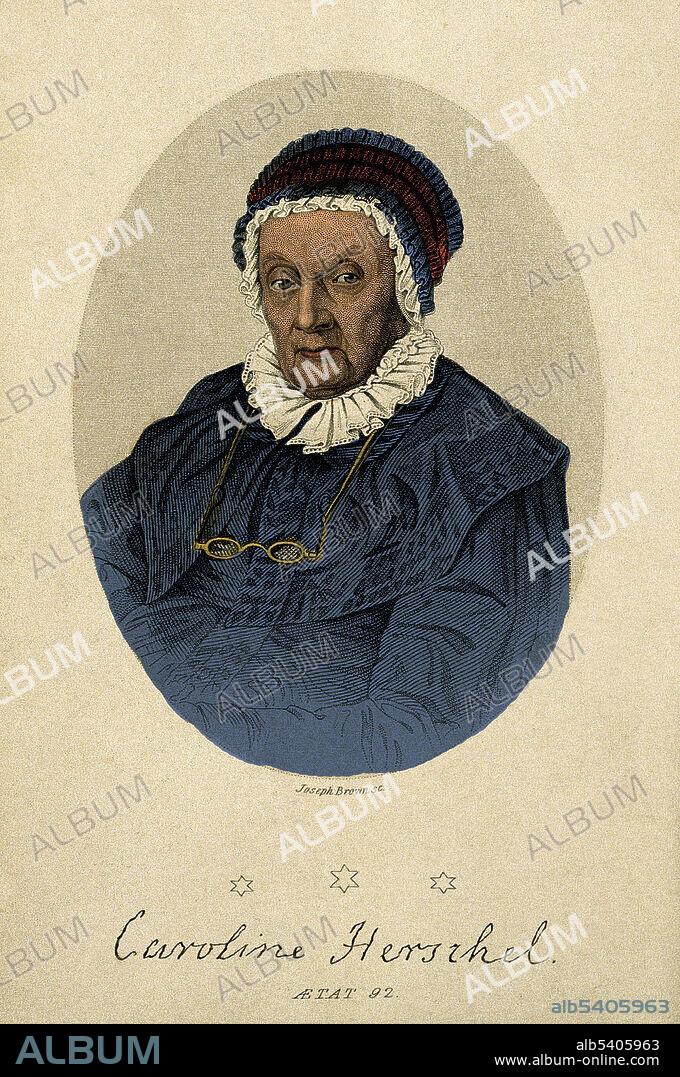alb5405963
Caroline Herschel, German Astronomer

|
Añadir a otro lightbox |
|
Añadir a otro lightbox |



¿Ya tienes cuenta? Iniciar sesión
¿No tienes cuenta? Regístrate
Compra esta imagen

Título:
Caroline Herschel, German Astronomer
Descripción:
Ver traducción automática
Caroline Herschel, aged 92. Stipple engraving by Joseph Brown. Caroline Lucretia Herschel (March 16, 1750 - January 9, 1848) was a German astronomer. At the age of ten, Caroline was struck with typhus and suffered vision loss in her left eye as a result of her illness. Her mother felt it was best for her to train to be a house servant rather than becoming educated in accordance with her father's wishes. She was the younger sister of astronomer William Herschel, with whom she worked throughout her career. Caroline spent many hours polishing mirrors and mounting telescopes in order to maximize the amount of light captured. She also learned to record, reduce, and organize her brother's astronomical observations. Her most significant contributions to astronomy were the discoveries of several comets, including the periodic comet 35P/Herschel–Rigollet, which bears her name. She was the first woman to be awarded a Gold Medal of the Royal Astronomical Society (1828), and to be named an Honorary Member of the Royal Astronomical Society (1835, with Mary Somerville). She was also named an honorary member of the Royal Irish Academy (1838). The King of Prussia presented her with a Gold Medal for Science on the occasion of her 96th birthday (1846). Caroline Herschel died peacefully in 1848 at the age of 97.
Personas:
Crédito:
Album / Science Source
Autorizaciones:
Modelo: No - Propiedad: No
¿Preguntas relacionadas con los derechos?
¿Preguntas relacionadas con los derechos?
Tamaño imagen:
2480 x 3736 px | 26.5 MB
Tamaño impresión:
21.0 x 31.6 cm | 8.3 x 12.5 in (300 dpi)
Palabras clave:
ALEMAN • ARTE • ASTRONOMIA • ASTRONOMO • BLANCO Y NEGRO • CIENCIA • CIENTIFICO • FAMOSA • FAMOSO • FIGURA • GRABADO • HERMANA • HERSCHEL • HISTORIA • ILUSTRACION • MAYOR • MUJER • PERSONALIDAD • PORTRAIT • RELACION HERMANA-HERMANA • RETRATO • S. XVIII • SIGLO XIX • SIGLO XVIII
 Pinterest
Pinterest Twitter
Twitter Facebook
Facebook Copiar enlace
Copiar enlace Email
Email
